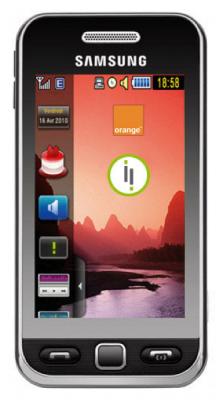Orange to Put NFC Phones on Sale Nationally in France

France Telecom-Orange will put NFC phones on sale in its shops throughout France starting in January–without the NFC services to match–hoping to seed the market with devices.
The telco, France’s largest with more than 26 million subscribers, confirmed the move following reports last week. Orange had earlier made known its target of selling 500,000 NFC phones by the end of 2011.
No other mobile operator has publicly stated a goal for NFC phone sales and disclosed plans to put phones generally on sale in its shops, noted Vincent Barnaud, director of contactless solutions at Orange.
"We want to trigger the rollout of services by creating a customer base," he told NFC Times.
The telco will start with the NFC version of the Samsung S5230, Player One, which Orange and other mobile operators in France have been selling in the Mediterranean city of Nice since May for their "Cityzi" precommercial NFC trial. But the planned phone rollout will include other NFC handsets, Barnaud said, though declined to reveal the names or types of models. With NFC handset availability only expected to begin to grow early next year, Orange would not have a broad selection of models on sale at any one time next year.
But Barnaud added that Orange sticks by the target of selling 500,000 NFC phones by the end of 2011, and if the telco revises that figure, it would be adjusted upward, he predicted.
"The decision by Orange is not going after fancy phones, fashionable phones; it’s going after the volume market," Barnaud told NFC Times. "We want millions of customers. We need to get Cityzi in phones people buy, whether high-range phones or low-range phones."
Cityzi is a brand the French telcos and other project organizers have chosen for NFC tags and some other NFC services.
The handset strategy only applies to France, but could eventually move to other Orange branches in the France Telecom Group in Europe, such as Spain and Poland. But Orange's UK branch, part of a joint venture with Deutsche Telekom-owned T-Mobile UK, is pursuing its NFC plans separately.
Even restricted to France, the move by Orange is a gamble. Orange shops will be putting NFC phones on sale at the same price the phones would sell for without NFC chips and related software. But the telco will see no revenue from the NFC functionality until services launch, which could be in 2012.
Until then, the telco wouldn’t be able to promote NFC outside of Nice and the three to five other French cities expected to launch precommercial NFC services in 2011 with support from the French government.
And it remains to be seen how well the phones sell. Since Orange and its main competitors, SFR and Bouygues Telecom, along with mobile virtual network operator NRJ Mobile, began selling the Samsung S5230 in Nice in May, they have yet to sell all of their combined 3,300 phones. That is despite a marketing push around NFC in the city.
But Orange estimates it has sold about twice as many of the NFC version of the Samsung model as it would have sold of the non-NFC version of the same S5230 phone through its Nice shops. The touch-screen Player One, though only a 2G handset, is among the most popular phones in France. Orange’s allotment of the NFC-version of the Samsung phone for Nice is about 1,000 units. The four French telcos expect to sell all of the 3,300 phones before the end of 2010.
The higher sales of the model in Nice might be due to the added NFC features and promotions by operators and some service providers. Users can do transit ticketing, including buying tickets over the air and tapping on readers in buses and trams to pay fares. There are also some retail-couponing programs and tag-reading at transit stops and museums. But the retail-payment applications, available from two banks so far, were late to the market.
By the first quarter of next year, industry sources expect other NFC phones to be on the market, including some smartphones based on the Android and Symbian operating systems. Some BlackBerry models will also be available, perhaps later in the year.
Handset makers are developing these models in response to demand they see from operators, say observers, especially big U.S. carriers, which have formed a joint venture to roll out mobile payment and other NFC services.
Orange France, with its phone rollout plans, not only hopes to get handsets into the pockets of subscribers in preparation for the launch of NFC services in France, but it also no doubt wants to send a signal to handset makers of sustained demand.
In the NFC phones it has ordered, Orange would have asked for support for the single-wire protocol standard, which would enable the SIM cards it issues for the phones to carry secure NFC applications. Orange plans to charge service providers fees for hosting their applications on the SIMs. Orange, however, might market phones that don't support the single-wire protocol, in an effort to gain a larger base of NFC-enabled subscribers.
The French operators are placing high hopes in the planned launch of NFC transit ticketing in 2012 in the Paris region, where 8 million people ride buses, trams, trains and the metro.












